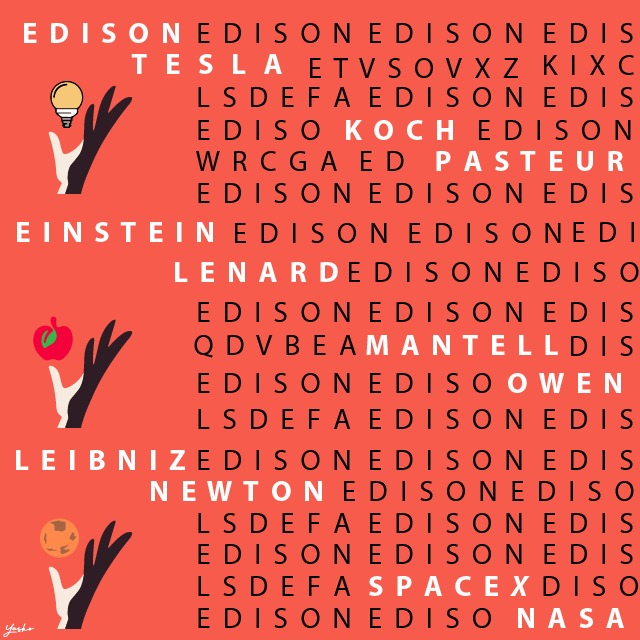
The words ‘Science’ and ‘Technology’ paint images of impartial practicality, well above mundane mismatches. In such highly technical and fact-based fields, fallacies do exist, but conflicts are hard to come across. It is a true epiphany to realize that there are so many cases throughout scientific history when two individuals or organisations disagreed, science turned against itself, and the differing schools of thought left the world reeling in their wake. From conflicting hypotheses to cases of stolen credit, from ethical issues to simple stubbornness and ego, there are a plethora of contraries within these fields of intellect.
1. Edison vs Tesla: Say Watt?
Thomas Edison was the acclaimed inventor of the light bulb and the business tycoon who established a number of invention factories and bears an enduring legacy. He proposed and propagated an efficient means of power transmission through Direct Current. His contemporary Nikola Tesla wanted to use Alternating Current for the same purpose, having come up with the rotating magnetic field which is the basis of most AC machinery in use today. Both of them worked together briefly before parting ways due to differences in ideologies. While Edison as a power icon and his technologies pandered to the market, Tesla was quite eccentric. Tesla’s inventions were disorderly and made him more of a futurist. Nevertheless, both have made significant contributions to the scientific community.
2. Kochopuffs or Fresh Oat Pasteur? : Koch vs Pasteur
Not only will your history books tell you about the tension between France and Germany but even your Science books will. German Robert Koch and French Louis Pasteur, two great figures in the field of Medical Microbiology got into a duel with national rivalry and language barrier as their weapons. The Franco-Prussian war was the backdrop to the rivalry hence nationalist sentiments added fuel to the fire. Both the geniuses clashed when they started working on the same disease, Anthrax. The common interest initially did not cause any tension. Things started heating up when they met at a Medical Congress in London in 1881. Some mere miscommunication started the fire. In the upcoming years, the game of one-upmanship continued between the two. But the rivalry turned out to be a boon to mankind. Pasteur discovered a vaccine for Rabies while Koch identified the cause of Tuberculosis.
3. Einstein vs Lenard: Physics, finally as(jew)?
GOAT! Got offended? Well, that is what Albert Einstein was called by Philipp Lenard, a German experimental physicist who advanced the study of cathode rays and received a Nobel Prize for the same in 1905. Einstein came up with the theories of special relativity, general relativity, and mass-energy equivalence. He relied on key experimental results furnished by the work of Lenard for his theories on the photoelectric effect. Lenard was convinced that science was somehow grounded in bloodlines which led him to become one of the early adherents of National Socialism. The relationship between the two was quite cordial initially but turned bitter when Lenard became more and more mired in anti-Semitism, accusing the “Jewish press” of, among other things, promoting Einstein’s dangerous work on relativity. He even went as far as tainting Einstein’s image by accusing him of being a Jewish spirit who had come to rule over Physics.
4. Dino(sour): Owen vs Mantell
An archetypal villain. Aptly coined with that name is the bad boy of nineteenth-century biology, Richard Owen. However, Gideon Mantell made his mark long before Owen came into the scene. Mantell’s discovery of the teeth of Iguanodon, a major genus of dinosaurs kick-started the study on the giant reptiles, who ruled the planet once upon a time, whereas Owens coined the term Dinosaurs. A common interest led to a feud turning them into arch-enemies, however, Owen was the more bitter one. Circumstances worsened for Mantell after he suffered an injury in the spine and he got a divorce. But he still wrote and tried publishing papers. Things came tough when the head of the Royal Society was non-other than Richard Owen himself. Mantell took his own life in the year 1852. Owen transferred the claims of several discoveries from Mantell to himself. As a final act of indignity, he placed Mantell’s spine in a jar and put it up for display at the Royal College of Surgeons of England where Owen taught.
5. Leibniz vs Newton : Differential Credential
Ever heard the name of Gottfried Leibniz in your Calculus class? No? Just Newton? Well, you’re not alone. Newton accused Leibniz of plagiarism even though Leibniz published his version of Calculus two decades before Newton did. When Newton realized that Leibniz was making advancements in calculus, Newton made sure that he got all the credit. The accusations are hanging in the air as nobody can confirm this. As a result, the British scientific community suffered a setback as no one took advantage of the wonderful developments of Calculus that were taking place in Continental Europe. Both Newton and Leibniz were capable of incredible mathematical discoveries, but their dispute demonstrated they were also capable of some rather less than impressive behaviour.
6. Starwars: SpaceX vs NASA
Love beef? Then you will definitely love the one between the government organisations and the private sector in all things space. It comes as no surprise that the government agencies can’t bear the brunt. Government organisations have been indomitable but now the scenario is different. Companies like SpaceX and Blue Origin are slowly inching towards pushing the boundaries of space technology further than government agencies with an enduring legacy like NASA. Where the cause of science should bring organisations together, it is pushing them apart. The case of SpaceX and NASA serves as the perfect example.
The CEO of SpaceX, Elon Musk and the administrator of NASA, Jim Bridenstine recently got into a feud. Considering the business contracts between the two organisations, one can expect a cordial relationship between the two. But the roads became topsy-turvy after Bridenstine tweeted a day prior to when Musk took the stage to present the latest Starship updates, about how SpaceX should put the same dedication in completing the contract that it has with NASA for Commercial Crew, ultimately hurting the taxpayers. When asked in a media conference about it, Musk retorted by interrupting with, “Did he say Commercial Crew or SLS?” This was in reference to NASA’s own Space Launching System on which the organization has been way over the budget and is running years late.
The one thing bigger than two organisations with bad blood between them is when the legal body of an entire country turns against one person. Let’s look into a controversy that materialised recently. The two characters at play here are internet hacktivist Aaron Swartz and Carmen Ortiz, the prosecutor. Aaron Swartz was a prodigy and a genius, most famously, a co-founder of Reddit. Carmen Ortiz, on the other hand, simply aimed at upholding the laws she had sworn an oath to protect.
Carmen: Being a prosecutor means bringing justice. There are plenty of Robin Hoods out there, who believe they are doing good by breaking laws, but laws and rules wouldn’t exist if they weren’t meant to be followed. And that’s all I do. I ensure that rules are followed, and punish people who don’t follow them.
Aaron: I do not bear any pride in my many accolades, for the world I live in is still shackled. My foray into activism began three years ago when I published the Guerrilla Open Access Manifesto. I have never understood why information is tied down, and I’ve dedicated my life to efforts in the direction of creating a world without exclusivity, with free and open access for everyone.
Carmen: Aaron Swartz was a familiar name. He caught the attention of the FBI after he downloaded public court documents from the PACER (Public Access to Court Electronic Records) database. Originally offered at 8 cents per page, he wanted to make them more easily available to everyone. Downloading them was not illegal, for they were public, and federal documents don’t come under copyright. Swartz had had his first Robin Hood moment, and the internet loved him. But we knew that he was a time bomb just waiting to explode.
Aaron: One issue that had always bothered me was copyright. They claimed that it safeguarded authors, but in reality, it was a ploy for companies to privatize publications and make millions of dollars for their own profit. I had long wanted to shed light on this, and Journal Storage (JSTOR) was a perfect target. PACER had given me an affinity for multiple large downloads, and all it took was a networking switch in a controlled-access wiring closet for the downloads to begin. When they blocked my IP address, I knew that things had begun to go very, very wrong. I was not surprised when they arrested me near the Harvard campus, but I had no regrets.
Carmen: The time bomb had exploded. I was assigned to supervise the lead prosecutors. This guy was an internet folk hero with a brain sharper than a knife, and I knew it would be hard, and I knew that I had to be tough. The worst part of the prosecution was that JSTOR even signed a plea bargain where Swartz wouldn’t serve any time, but MIT was not on board. To me, it was simple. JSTOR was publicly funded with money from taxpayers. Swartz was a felon, for he had broken the law. There doesn’t need to be a victim for an act to be labelled a crime. A broken rule is all the evidence we need.
Aaron: They were giving me hell because they were embarrassed. They were embarrassed about the PACER incident and embarrassed about the fact that I’d gotten into JSTOR. I involved myself in stopping the SOPA (Stop Online Piracy Act) and we won. Another embarrassment for them. But I was digging my own grave with my zealous hacktivism, for the plea bargain that they finally settled for was ‘only’ 6 months of prison if I pleaded guilty to 13 federal charges. But they wanted to make me a common criminal, a danger to society, which I was not. I only championed what was right. I was caught in the crossfire between my values and the world’s rules, and since I didn’t want to duck, I had no choice but to give in.
Carmen: Aaron Swartz’s body was found by his partner, Taren Steinbrickner-Kauffman, on 13th January 2013 approximately two years after initial misdemeanour. It didn’t take long for her, joined by his family and friends, to start pointing fingers at us. We dismissed the charges, of course, but my husband Tom Dolan called them out, saying “Truly incredible that in their own son’s obit they blame others for his death and make no mention of the 6-month offer.”, only adding fuel to the fire. Our jobs revolve around restoring good, but ironically, this made us the villains in the tale of Aaron Swartz. We were simply bad cops in this story of martyrdom.
In this ever-evolving world of technology, Aaron Swartz was a martyr of his cause. He refused to back down from the ideals he believed in. Cameron Ortiz held the rules together as she was paid to do, and refused to back down from the ideals she followed. Their views waged war against each other, but in refusing to back down, they both did the same thing. The only difference was that the law backed one and not the other, and two rights precipitated into a wrong.
Written by Shuba Murthy, Ankitha Giridhar and Swikruti Kar for MTTN
Featured Image by Yashovardhan Parekh
Graphics by Chirag Bansal
Image Sources: Google
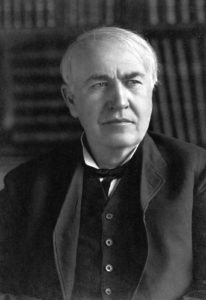
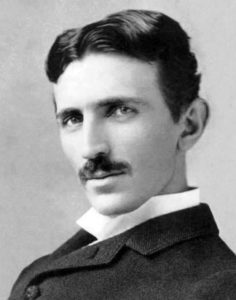
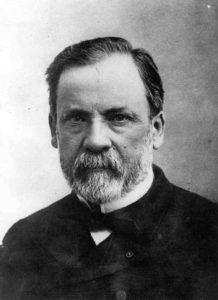

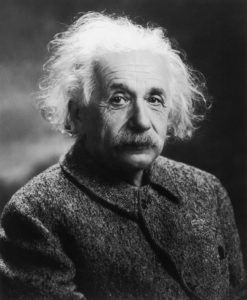
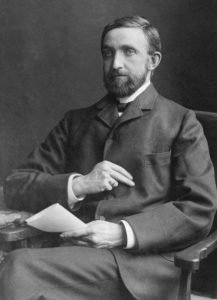
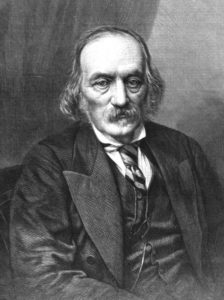
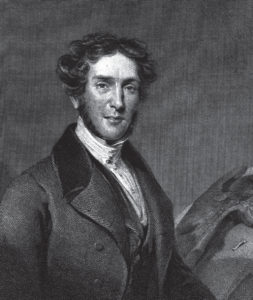
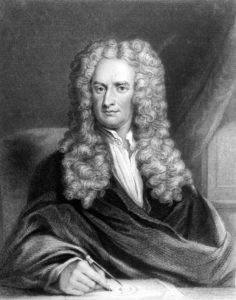




Leave a Reply
You must be logged in to post a comment.